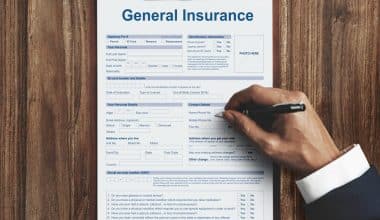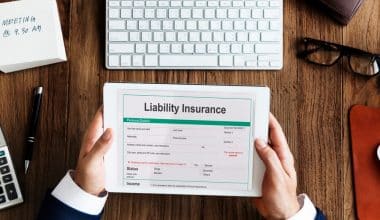A business owner’s policy (BOP) is a type of insurance policy that combines general liability insurance and commercial property insurance into one package. This type of policy is designed to protect small businesses from a variety of risks, including property damage, lawsuits, and income loss.
BOPs are a popular choice for small businesses because they are relatively affordable and easy to understand. They also offer a wide range of coverage options, so businesses can choose the coverage that best meets their needs.
In this blog post, we will discuss everything you need to know about a business owner’s policies, including:
- What is a business owner’s policy?
- What does a business owner’s policy cover?
- How much does a business owner’s policy cost?
- How to choose the right business owner’s policy for your business
If you are a small business owner, we encourage you to learn more about business owner’s policies. A BOP can provide your business with the protection it needs to succeed.
What is a Business Owner Policy?
A business owner policy (BOP) covers all key property and liability risks in a single insurance package. This form of policy combines the essential coverages required by a business owner into one package, yet it is typically marketed at a lower rate than the total cost of the individual coverages.
Policy Requirements for a Business Owner
Not all businesses are eligible for business owners’ insurance. The eligibility conditions change between suppliers. Insurance companies may have requirements regarding business location, site size, revenue, and business kind.
For example, most insurance companies only cover businesses that conduct all of their operations on-site. They may also have restrictions if a primary business property exceeds or falls below a certain size. Retail outlets, apartment buildings, small restaurants, and office-based enterprises are typically eligible for BOPs.
What Does a Business Owners Policy Cover?
A business owner policy protects the physical components of your business, including inventory, equipment, and the building, from a variety of risks, including those arising from claims and lawsuits. This includes incidents such as fire, theft, vandalism, and bodily harm.
What Does Business Owner Policy Not Cover?
Auto insurance, workers’ compensation, health insurance, and professional liability are all excluded from a business owner policy.
What Is the Difference Between a Commercial Package Policy and a Business Owner Policy?
A business owner policy (BOP) is a collection of insurance policies designed for small to medium-sized firms, whereas a commercial package policy (CPP) is a pick-and-choose style policy designed for large businesses and suited to their specific needs.
What Is the Purpose of a Business Owner’s Policy?
A Business Owner’s Policy (BOP) is generally required if you rent or own space or have client contracts that need general liability insurance. A BOP can be beneficial to your business if:
- You have a physical address.
- There is a chance you will be sued.
- You have valuable assets that could be stolen or damaged.
How Much Does a Business Owners Policy Cost?
According to insurance marketplace Insureon, the median cost of a business owner’s policy is $53 per month or $636 per year.
However, the cost of a BOP might vary depending on a number of factors, including:
#1. Coverage limitations
Your BOP’s coverage limits have a direct impact on the cost. A $1 million or $2 million BOP is purchased by many small firms. This indicates that the insurer will offer $1 million in coverage for each claim and a total of $2 million during the policy’s lifespan (often one year). BOPs, on the other hand, are available with limits ranging from $300,000/$600,000 to $2 million/$4 million, and higher limits may be available depending on your insurance company.
#2. Industry
Larger-risk, more exposed sectors will pay a larger premium than lower-risk industries.
The type and value of the property you’re insuring determine the cost of the commercial property insurance component of your BOP. The higher the cost, the higher the property value and the more difficult it is to replace the property.
#3. Age and location of the company
The geographic location and duration of your business’s operations will also have an impact on its cost. Premiums for newer enterprises are often higher.
#4. Business size
The more employees you have, the greater your risk exposure and the higher the cost of a BOP.
#5. Histories of claims
When offering you a premium, insurers take into account your claims history.
The cost of your business owner’s policy will rise if you add optional coverage.
Where Can You Get a Business Owners Policy BOP?
If you already have general liability insurance, property insurance, or another sort of coverage with a specific insurer, you should inquire about a business owner’s policy. By selecting the insurance bundle, you may be able to obtain cheaper business insurance.
Several companies sell business owner’s insurance. Consider the following as a starting point for your search:
#1. Chubb
According to the Insurance Information Institute, Chubb held the greatest proportion of the commercial insurance market in 2021.
This insurer provides a business owner’s policy with optional add-on coverages such as data breach and data liability insurance, as well as crime and employee dishonesty insurance. You can obtain a quote and purchase a Chubb BOP online.
Who it’s a good fit for: Business owners want to get insurance online from a large, well-known insurance firm.
#2. Hiscox
Hiscox provides plans for business owners in 43 states and Washington, D.C. You can get a price and decide whether to purchase the policy after completing a short questionnaire about your business’s insurance needs.
Who it’s a good fit for: Customers who require additional business insurance, such as cybersecurity insurance, in addition to a BOP. If you buy two or more Hiscox policies, you can get a 5% discount.
#3. State Farm Insurance
State Farm distributes insurance coverage through a network of insurance agents across the country. You’ll need to speak with an agent before you can receive a quote and buy a policy, but speaking with an agent can help you grasp the subtleties of your coverage.
Customers who require professional liability insurance are an excellent fit. Some State Farm customers can add this coverage to their BOP, which could make it a viable alternative for professional services businesses.
#4. Next
The following company is a business insurance startup that sells all of its policies online. Next sells a BOP as well as other typical types of coverage such as workers’ compensation and professional liability insurance. Customers can now access and share their insurance certificates digitally.
Customers who desire an all-digital experience and don’t require highly specialized types of coverage, such as directors and officers insurance, are a suitable fit. Read
#5. Hartford
Hartford, like State Farm, includes professional liability insurance as an optional coverage with its BOP. Policyholders can also get cyber liability insurance, which can assist in covering costs such as credit monitoring services and contacting affected customers following a data breach.
It is best suited to business owners who prefer to work with an independent insurance agent. Though it is possible to acquire an estimate online and purchase a policy from a Hartford representative, the firm also works with insurance brokers countrywide.
#6. Progressive
Progressive sells business owners’ policies (BOPs) and other commercial insurance plans, but they may be underwritten by different insurance companies than Progressive. According to the Insurance Information Institute, this insurer is primarily recognized for commercial auto insurance, for which it had the greatest market share in 2021.
Customers whose major focus is commercial auto insurance are an excellent fit.
5 Reasons Your Company Needs a BOP
Business owner’s policy insurance will protect you if your company has:
- Workers: Workers may inadvertently hurt consumers or damage property. This policy will safeguard them as well as your business.
- Any possibility of a lawsuit: If a customer slips and falls in your store, this can assist in paying for their medical expenses as well as your legal costs.
- A physical location: Your BOP policy may cover enterprises operated from your home, a rented or owned office, store, or garage.
- Potentially stolen or damaged assets: Digital property, equipment, furniture, cash, and merchandise are all difficult to repair or replace without proper insurance.
- Private customer data: If someone steals or loses personally identifiable information, this might assist in paying for costs such as alerting affected customers and public relations.
Who Should Get a Business Owner’s Policy?
Travelers BOP is designed to safeguard a wide range of small businesses, including:
- Commercial Real Estate Contractors
- Finance Services
- Garages
- Medical Devices Manufacturers
- Personal Care Services for
- Pets Services
- Publishers and printers
- Religious and Cultural Organizations
- Food Service and Restaurants
- Retail Technology Services for Businesses
- Distributors and wholesalers
Is Your Company Qualified for a Business Owner’s Policy?
Businesses often need the following to qualify for BOP savings:
- A low-risk business
- Fewer than 100 workers
- Annual income of less than one million dollars
- A modest commercial establishment
Is It Feasible to Supplement a BOP Policy With Coverage?
Yes. The policies of the business owner are adaptable. To fit your individual needs, you can supplement your BOP insurance with additional coverages known as endorsements.
Many businesses combine BOP with other types of business coverage, such as:
#1. Business Interruption Insurance
When your business activities are temporarily disrupted, business interruption insurance (also known as business income insurance) covers the loss of income and additional expenses.
#2. Business Renters Insurance
A sort of insurance package called business renter’s insurance protects your rented business premises against fire, vandalism, and weather damage. It is comparable to the renter’s insurance that many apartment dwellers have.
#3. Contractor’s Tools and Equipment Insurance
Contractor’s tools and equipment insurance, a type of inland marine insurance, protects business property while it is being transported. It can protect a general contractor or handyman who takes tools and equipment to various project sites.
#4. Data Breach Insurance
Data breach insurance (also known as cyber insurance) assists retailers and other businesses in recovering after a data breach exposes customer information such as credit card numbers.
#5. EDP Insurance
EDP insurance protects your electronic data processing equipment, such as computers and backup systems, against data loss in the event of a power outage, fire, natural disaster, or other similar incident.
#6. Property Damage Coverage
Your property damage coverage is expanded to encompass data loss caused by unintentional damage to a customer’s computer, hard drive, or other data storage equipment with electronic data liability coverage. While cyber liability insurance often covers data lost as a result of a targeted software attack, electronic data liability insurance covers data loss when a network or storage device sustains accidental physical damage.
#7. Employee Dishonesty Insurance
Employee dishonesty insurance protects your business from employee theft, such as a cashier stealing from the register or forging a check.
#8. Hired and Non-owned Auto Insurance
Hired and non-owned auto insurance (HNOA) covers leased and personal vehicles that a business owner may use for commercial purposes such as visiting clients on occasion.
#9. Liquor Liability Insurance
Liquor liability insurance protects bars and restaurants from liability if they sell alcohol to an inebriated person who then causes property damage or harms another.
#10. Professional Insurance
When a client challenges the quality of professional service, professional liability insurance (also known as errors and omissions insurance or E&O) protects the business.
#11. Comprehensive Umbrella Insurance
If you handle large clients or run a high-risk business, you can supplement your business owner’s policy with commercial umbrella insurance. Umbrella insurance increases your maximum general liability limits, allowing your insurer to cover more expensive disputes.
What Are the Benefits of a Business Owner’s Policy?
Purchasing a BOP Policy is a wise and easy decision. It reduces coverage requirements by including business property and liability insurance. This is a combination of two key coverages.
What Is the Difference Between a Commercial Package Policy and a Business Owner’s Policy?
A business owner’s policy combines general liability and commercial property insurance into a single policy and is typically less expensive than purchasing the coverages individually. Small business owners and startups frequently purchase it to save money on liability insurance.
Larger organizations with higher risks, such as small or medium-sized businesses with numerous employees, frequently obtain a commercial package policy (CPP). A CPP enables you to combine different liability policies, giving you greater flexibility in terms of the risks covered and the coverage levels.
It also allows you to add endorsements, sometimes known as riders, to your insurance policy to expand or modify the types of coverage you have and adapt them to your personal insurance needs.
What Are the Policy Exclusions for a Business Owner?
Some coverage exclusions apply to BOPs. For instance, a BOP frequently does not cover property damage resulting from natural disasters like earthquakes, hurricanes, tornadoes, and floods. If you require coverage for these occurrences, you must add a special endorsement to your policy.
A BOP also does not cover the costs of legal defense in litigation involving intentional copyright infringement or willful ignorance, both of which are criminal violations. The policy does not apply to customer injury or intentional property damage in the same category.
Alcohol-related incidents are likewise excluded from a BOP. A liquor liability endorsement may be able to cover these claims.
Consult a certified insurance agent to ensure that your business owner’s policy has all of the coverage you require.
What Is the Difference Between a Business Owners Policy and General Liability Insurance?
A business owner’s policy combines general liability and property insurance into a single policy that is simple to maintain. General liability insurance protects your business against third-party liability claims such as physical injury, property damage, and personal injury. A BOP eliminates the need for a separate general liability insurance policy.
What is the Definition of Business Personal Property?
Furniture, machinery, merchandise, and electronics are examples of the types of transportable property that your business owns and utilizes. A business owner’s policy will cover it.
Is Rented Commercial Property Covered by a Business Owner’s Policy?
BOPs are primarily used to cover leased or rented structures. You can expand this coverage to include a wider range of risks.
Is It Feasible to Extend Coverage on a Business Owner’s Policy?
Coverage can be added to a BOP through insurance policy revisions known as endorsements. Cyber liability, food contamination, tools and equipment, and other endorsements are common.
Can a Business Owner’s Policy Assist Pay For Damage From Natural Disasters?
Yes, in many circumstances. Many natural disasters, such as hail, lightning, wind, hurricanes, and tornadoes, are often covered by commercial property coverage through a BOP. A BOP, on the other hand, frequently excludes other hazards, such as earthquakes and floods.
Your coverage may differ depending on individual policy terms, endorsements, or other changes.






